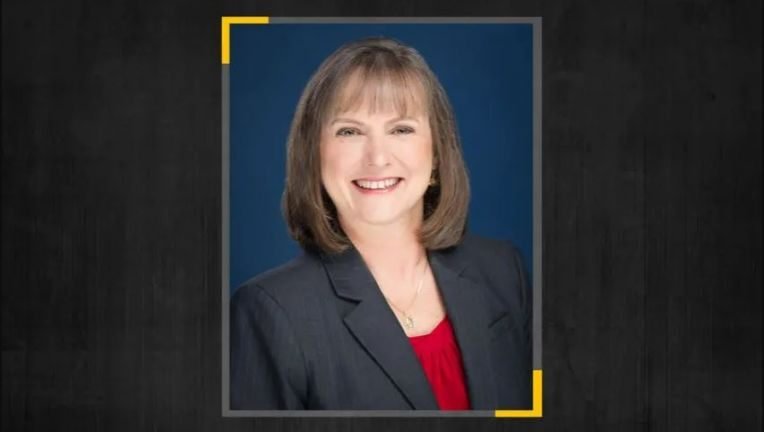Public Utility Commission of Texas chair resigns amid criticism over power outages

AUSTIN, Texas -- DeAnn Walker, the chairwoman of the Public Utility Commission of Texas, the agency that regulates the state’s electric, telecommunication, and water and sewer utilities, resigned Monday, according to a resignation letter provided to the Texas Tribune.
The Gov. Greg Abbott-appointed commission came under public criticism in the aftermath of Texas’ power crisis that left millions of people in the dark for days and claimed the lives of dozens.
Earlier Monday, Lt. Gov. Dan Patrick had called for Walker and Electric Reliability Council of Texas CEO Bill Magness to resign.
The PUC is charged with overseeing the Electric Reliability Council of Texas, or ERCOT, a nonprofit entity that manages and operates the electricity grid that covers much of the state.
Lawmakers began to call on the commissioners to resign last Thursday after hearing testimony from Walker, who took little responsibility for the crisis during the house and senate committee hearings on the power outages. Rep. Jared Patterson, R-Frisco, wrote on Twitter that he has “zero confidence” in her after the Thursday hearings and that she “must” resign.
Walker came under fire during questioning for not doing more to prevent the crisis from occurring. Lawmakers probed how much information she had on whether the state’s power system could withstand winter storms, and questioned why she didn’t raise concerns about the possibility of outages sooner.
Walker, during her testimony to lawmakers last week, largely deflected blame to ERCOT and Magness, who testified in front of state senators on Thursday before Walker did.
“You know, there’s a lot of things Bill said about our authority over them that I simply disagree that that’s how it’s actually playing out in real life,” Walker told lawmakers.
But lawmakers countered that she leads the regulatory agency with the oversight of the power sector: “When you say you don’t have authority,” said state Sen. John Whitmire, D-Houston, “I’ve got you down as a pretty powerful person.”
Walker said the commission has “not been given legal authority by the Legislature to require winter weatherization,” a primary concern after the power crisis was precipitated by power plants tripping offline. Many power generators are not built to withstand extreme cold weather temperatures in Texas.
Walker deflected blame to ERCOT, the entity her agency oversees, and added of winterization: “It costs a lot of money.”
In her resignation letter to Gov. Abbott, Walker said she was resigning because she believed it to be in the best interest of the state. She also pushed back on criticisms that she did not take responsibility for the outages.
“I testified last Thursday in the Senate and House and accepted my role in the situation,” Walker wrote.
She went on to call on others, including the Railroad Commission, ERCOT, the Legislature, gas companies, electric generators and other industry players to “come forward” to acknowledge how their actions contributed to the power crisis — all of them, she wrote, “had responsibility to foresee what could have happened and failed to take the necessary steps for the past 10 years to address issues that each of them could have addressed.”
Renae Eze, a spokesperson for Abbott, said in a statement that the governor thanks Walker for her service to the state.
"Our focus is to continue working collaboratively with the Legislature on reforms to our power system and look forward to passing lasting and meaningful solutions to ensure these tragic events are never repeated,” Eze said in a statement.
Walker was appointed to the position by Abbott in 2017 for a term that would have expired in September. Prior, she was a policy advisor to Abbott on regulated industries and before that, worked for CenterPoint Energy, a Houston-based electric utility company that moves power to much of the Houston region, as associate general counsel and director of regulatory affairs.
